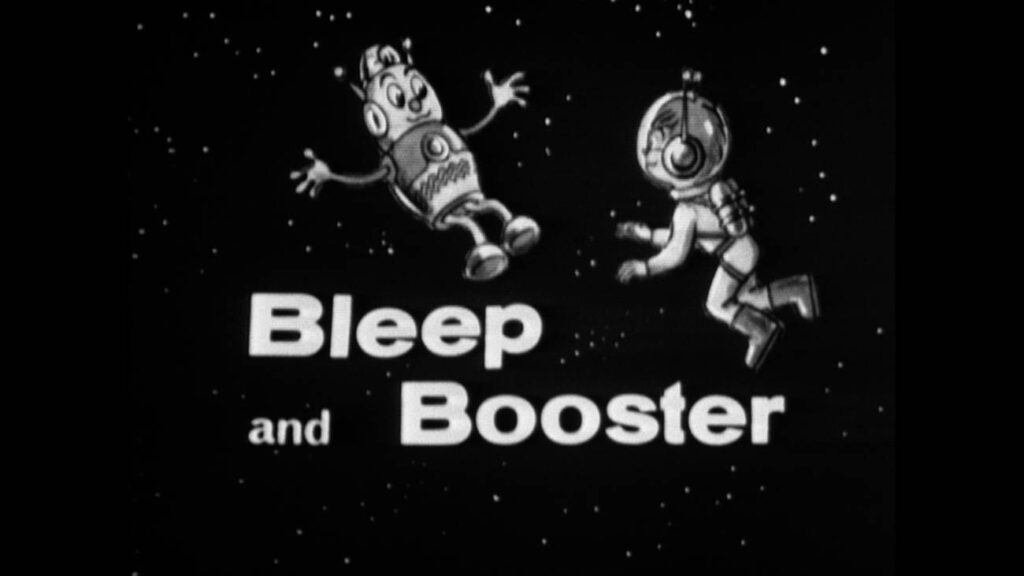On 21 September 2025, The Sunday Times published a review by Graeme Richardson of Len Pennie’s collection Poyums Annaw. Richardson raised concerns that Pennie’s poem ‘Good Girl’ may have plagiarised an earlier work, ‘Laika’, by Sarah Doyle. Richardson wasn’t much impressed with the rest of collection either, describing Pennie’s verse as “execrable” and dubbing the poet herself as “the worst … to have emerged from Scotland since William McGonagall”.
Cue: immediate internet hysteria, Pennie’s legion of social media-cultivated fans piling in to defend her and accuse Richardson of misogyny and bullying. Her publishers, Canongate, filed what the handful of mainstream media outlets who covered the story called “a legal complaint”. Press hyperbole hinted at actual legal action, however a quote from a Canongate spokesperson buried in the lower paragraphs of an article in The National – “we lodged a complaint because we felt the review to be making implications that were unwarranted, and wanted to defend our author, but we don’t expect it to go any further” – suggests it was an entirely performative act.
Absent Pennie’s fans taking to their iPhones while Canongate speed-dialled a tame solicitor (white noise, all of it), and we’re left with two pertinent questions:
- Is Pennie a plagiarist?
- Is the tone and content of Richardson’s review justified?
While Doyle’s ‘Laika’ is widely available online, I could only find ‘Good Girl’ as a video of Pennie reading it. I don’t have a copy of Poyums Annaw that I can refer to, and trying to transcribe it from the video and fudging the lineation would be critically questionable. Still, listening to Pennie read ‘Good Girl’ with a copy of ‘Laika’ in front of me was enough to determine that there were a couple of notable similarities. The differences, however are more telling. Doyle’s poem is compact, Pennie’s overlong. Doyle use of rhyme is subtle and unobtrusive, Pennie’s hard, end-stopped and thuddingly obvious.
So is ‘Good Girl’ a work of plagiarism. Self-styled “poetry detective” Ira Lightman delivered a succinct, even-handed verdict in a post on Twitter/X:
“Pennie doesn’t copy line by line. I can’t see how she hasn’t read the Sarah Doyle original: as the review says, there seems a clear debt for two lines. But I’ve seen much more unoriginal wholesale ripoffs. “After Doyle” would have made it not plagiarism, I think.”
It is worth noting that ‘Laika’ is a short poem of just twenty-one lines, none of which contain more than six words, so even just two points of similarity seems to be more than coincidence. Also worth noting is the loaded construction of that last sentence: “would have made it not plagiarism”, capped with a nicely ambivalent “I think”. Pennie’s defenders cite a cottage industry of poems about Laika, the dog sent into space by the Soviets in 1957, therefore crossover of theme, imagery and language is inevitable. There’s some legitimacy to the cottage industry assertion, as evidenced by a Tumblr thread which lists eleven different poems, six of them simply titled ‘Laika’. Doyle’s is included, along with pieces by heavy hitters Zbigniew Herbert and Lavinia Greenlaw. Interestingly, Pennie’s ‘Good Girl’ is absent.
My favourite, though, by an anonymous Tumblr user, is ‘Muttnik’, which balances its winningly punning title with some bona fide great turns of phrase: “I’m a halfway thing, more bullet than dog”; “in a hold silver as this a mongrel can be a heroine; any stray can make history”. Whoever you are, anonymous Tumblr user, you are better versifier than many poets with publishing deals. Please start putting your name to your work.
But I digress. And I still haven’t squared up to the question. Is Pennie a plagiarist? Reading the eleven poems in the Tumblr list, I found no turns of phrase that overlapped as clearly as the two points of comparison between ‘Good Girl’ and ‘Laika’. In the interest of fairness, the possibility exists that Doyle’s poem inspired Pennie’s and the inclusions are by way of well-intended homage. As Lightman noted, the attribution “after Doyle” below the title would have saved Pennie and her publishers all this hassle.
As to the second question, things are clearer cut. Richardson’s assertion that Pennie is Scotland’s worst poet since McGonagall is brutal, but a comparison of the two poets bears him out. But before we get to that, it’s worth quantifying why McGonagall’s poetry is so awful. In an essay on the Society of Classical Poets website, Joseph S. Salemi has this to say:
“In a nutshell, everything is wrong with McGonagall’s poetry. It is so poor that sponsored competitions to produce poetry worse than his have all ended in failure. No one can write worse than McGonagall. When it comes to abominable poetry, he is la crème de la crème. Let’s see if we can understand why.
“The first thing to note is the utter, deadpan, blank earnestness of every line the man has written. McGonagall writes the poetry of plain, vapid, literal statement, completely devoid of any sophistication in vocabulary or sentence structure. There are no metaphors, or notable similes. Figures of speech are absent. The only discernible poetic device is rhyme, mostly monosyllabic. Reading McGonagall is analogous to listening to someone with an aphasic disorder trying mightily to speak.”
Taking as benchmarks “utter, deadpan, blank earnestness”, “vapid, plain, literal statement”, the lack of “sophistication in vocabulary and sentence structure” and rhyme as the “only discernible poetic device”, feast your eyes on the following half dozen excerpts and take a guess at which of our battling bards authored them:
The little girl stands on a knife-covered ledge,
Dancing till blood starts to drip from its edge.
She's been licking her wounds since the first time she bled,
Getting judged for each thought she commits in her head.
Oh, heaven! I must confess it was no joke
To see them struggling in the midst of suffocating smoke
Each man struggling hard, no doubt, to save his life,
When he thought of his dear children and his wife.
We must let our boys cry, let them vent, let them sing,
Let them sob and emote and feel every wee thing
Oh, Heaven! Befriend the bereaved ones, hard is their fate,
Which I am sorry at heart to relate;
But I hope God in His goodness will provide for them
Especially the widows, for the loss of their men.
To be loved through each compromise, question or qualm
To be sheltered from storm and enshrined in the calm
And I will place my affection on this little flower,
And it will solace me in a lonely hour.Okay, so that wasn’t exactly difficult. McGonagall wrote in an idiom that was old-fashioned even as he was applying pen to paper, while Pennie’s is fiercely contemporary. Yet the parallels are obvious: long lines stuffed with superfluous words; unsubtle end-stopped rhyming; unimaginative use of language; vapidity; literalism; utter lack of nuance; and total absence of craftsmanship. McGonagall and Pennie also share a fixation with chronicling the contemporary. McGonagall pounces on the Tay Bridge disaster, the coronation of Edward VII, the People’s Variety Theatre fire, and the various sinkings of HMS Victoria, the SS ‘Stella’ and the paddle steamer Forfarshire. Pennie’s work is so achingly “on trend” that it’s surprising her titles aren’t hashtagged.
So, yes, the McGonagall comparison holds water. Granted, Pennie has a better facility with scansion, and at 25 she may well develop in terms of craft, nuance and use of language whereas McGonagall cleaved to the same murderous aesthetic for the twenty-five years of his writing life.
It’s difficult to make a case that Richardson’s critical comments are inaccurate, but should he have toned them down, pulled his punches, kicked the McGonagall comparison to the kerb? Well, maybe … but isn’t it a reviewer’s job to discourage us from wasting our time and money on something half-arsed and steer us instead in the direction of what is genuinely good and well-crafted and enriching? Surely, pulled punches dilute emphasis, and without recourse to the emphatic criticism is weakened. Our current literary age is already moribund and riddled with a play-it-safe approach to reviewing not unlike the dishing out of merit badges purely for participating, while the trading of pullquotes between friends and colleagues is the stuff of circle-jerks rather than serious critical discourse.
And let’s be honest, shall we? There is a vicarious thrill to the bad review, be it Dorothy Parker’s assessment of Katharine Hepburn’s acting talent (“she runs the gamut of human emotions from A to B”), Martin Stannard taking a cudgel to the poems in Simon Armitage’s Selected (“remarkable for the smallness and parochialism of their ambition”), or Jay Rayner’s legendary evisceration of Le Cinq in Paris, twelve paragraphs of elegant violence served on a bed of landmines and drizzled with a reduction of venom and battery acid. “The dining room, deep in the hotel, is a broad space of high ceilings and coving, with thick carpets to muffle the screams. It is decorated in various shades of taupe, biscuit and fuck you,” is how he describes the general ambience, before even a forkful of would-be gastronomy is served. Richardson’s review of Poyums Annaw is light and fluffy by comparison.
Ultimately, Pennie’s collection is selling like hotcakes, Katharine Hepburn remains a Hollywood icon, Simon Armitage is Poet Laureate, and Le Cinq are happily charging €85 for a starter, up to €600 for a tasting menu and you don’t want to know about the wine list.
As F.W. Woolworth put it, “the customer is always right in matters of taste”. It’s a line that has entered the popular consciousness in truncated form (“the customer is always right”) and yet it’s the last four words which make the point. Woolworth would have been a good reviewer, I reckon.
Neil Fulwood
POETRY MADE BY ROBOTS WHAT NEXT?

